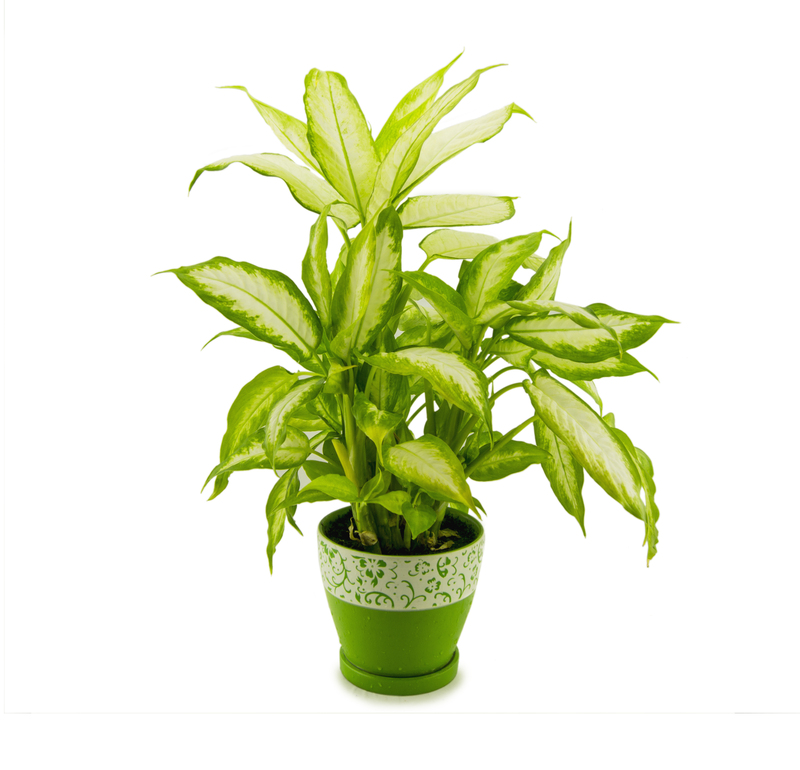Achieve a Pristine Lawn with These 3 Weed Control Strategies
Posted on 05/06/2025
Achieve a Pristine Lawn with These 3 Weed Control Strategies
A lush, green lawn is every homeowner's dream. But nothing ruins that flawless carpet of grass faster than weeds. These unwelcome intruders steal nutrients, water, and sunlight from desirable turfgrass, making your yard look messy and neglected. If you're serious about a perfect, weed-free yard, you need a comprehensive approach. In this article, we'll explore three highly effective strategies for weed control that will help you achieve a pristine lawn year after year.
Why Lawn Weed Control Is Essential
Weeds are persistent plants that can quickly take over your lawn, outcompeting grass for resources. Not only do they create an uneven and unattractive appearance, but they also weaken your turf and invite pests and diseases. By mastering the *best methods of weed prevention and management*, you'll set your yard up for long-term health and beauty.
- Improved curb appeal: A clean, weed-free lawn enhances the overall look of your property.
- Healthier grass: Eliminating weeds allows your desired turf to thrive without competition.
- Eco-friendly benefits: Proper weed control can reduce the need for excessive chemicals and help preserve local biodiversity.

3 Proven Weed Control Strategies for a Pristine Lawn
Let's dive into the top lawn weed control techniques that every homeowner should know. These strategies combine prevention, targeted removal, and lawn management to deliver exceptional results.
1. Prevent Weeds Before They Start: Proactive Lawn Maintenance
The old adage, "an ounce of prevention is worth a pound of cure," is especially true when it comes to weed management for lawns. Vigorous, healthy grass is your best defense against weed invasion.
Key Elements of Proactive Lawn Care Include:
- Regular Mowing: Mow your grass at the recommended height for your turf type. *Cutting too short* can weaken grass and expose soil, making it easier for weeds to germinate and grow.
- Proper Watering: Water deeply and infrequently to encourage deep root growth. Avoid daily, shallow watering, as this favors weeds with shallow roots.
- Lawn Aeration: Aerate compressed soil every 1-3 years to allow nutrients, water, and oxygen to reach grassroots. This helps your turf stay thick and resilient, crowding out weeds.
- Seeding Bare Patches: Overseed thin or damaged areas each fall or spring to prevent weed seeds from finding empty spots to sprout.
Mulching is another preventative technique, especially valuable in garden beds and borders. Applying a 2-3 inch layer of mulch blocks sunlight from reaching weed seeds, reducing their growth dramatically.
Benefits of a Preventative Approach
- Reduces the need for chemical interventions
- Creates an unfavorable environment for weed growth
- Improves overall soil health
2. Targeted Weed Removal: Manual and Chemical Methods
No matter how well you maintain your lawn, some weeds will inevitably appear. Combining physical weed removal with judicious use of weed killers is the most effective way to tackle existing problems.
Manual Weed Pulling: Best for Small Infestations
- Hand Pulling: Ideal for isolated weeds or seedlings. Use gloves and make sure to extract the entire root system, especially for deep-rooted weeds like dandelions.
- Weeding Tools: A dandelion digger, narrow spade, or weed puller can make the job easier and reduce soil disturbance.
Tip:
- Weed after watering or rain when the soil is soft--roots will come up more easily.
Chemical Weed Control: Selective Herbicides
- Pre-Emergent Herbicides: These are applied in early spring to prevent crabgrass and other annual weeds from sprouting. They create a chemical barrier at the soil surface that kills seeds as they germinate.
- Post-Emergent Herbicides: Used for weeds that have already appeared. Selective herbicides target broadleaf weeds (like clover and dandelion) without harming grass. Make sure to follow label directions for safety and effectiveness.
Pro Tip: Always choose the right product for your weed type and turfgrass--you'll avoid damaging your lawn while effectively getting rid of intruders.
Integrated Weed Management (IWM)
For the most stubborn infestations, combining manual weeding, spot herbicide treatment, and ongoing maintenance delivers the best results. *This integrated approach reduces reliance on chemicals, protects your turf, and prevents weed return*.
3. Encourage Dense Turf: Outcompete Weeds Naturally
The ultimate strategy for maintaining a pristine, weed-free lawn is to grow grass so thick that weeds can't get a foothold. A dense, healthy turf provides natural weed suppression by blocking light, occupying space, and using up available resources.
How to Build a Weed-Resistant Lawn
- Choose the Right Grass Type: Select varieties suited to your region, soil, and sun exposure. Cool-season grasses (like Kentucky bluegrass and fescue) thrive in northern areas, while warm-season grasses (like Bermuda and zoysia) are best for southern lawns.
- Fertilize Appropriately: Applying the right nutrients at the correct time boosts grass vigor. Too little fertilizer weakens lawns, but over-fertilizing can encourage weed growth and environmental harm.
- Mow Properly: Keep mower blades sharp and never remove more than one-third of the grass blade in a single mowing. Taller grass shades the soil and competes better with weeds.
- Overseed Annually: Re-seed each fall (for cool-season grasses) or late spring (for warm-season types) to patch thin areas and maintain density.
*Healthy turf will naturally outcompete the majority of common lawn weeds, minimizing your workload over time.*
Common Types of Lawn Weeds and How to Identify Them
To control weeds effectively, it helps to identify what you're dealing with. Here are a few of the most notorious lawn weeds to watch for:
- Dandelion: Bright yellow flowers, jagged leaves, deep taproot.
- Clover: Small, three-leaf clusters; spreads quickly in thin grass.
- Crabgrass: Sprawling, low-growing grass; wide blades; thrives in bare or compacted soil.
- Chickweed: Small, white star-like flowers; soft stems; grows in cool, moist weather.
- Plantain: Broad, rubbery leaves; low growing; tolerates compaction.
Knowing the specific type of weed can help you select the most effective control method and products.
Organic and Eco-Friendly Weed Control Options
For homeowners who prefer to avoid conventional herbicides, there are several organic weed control alternatives that are safe for kids, pets, and pollinators.
- Boiling Water: Pouring boiling water on weeds in pathways or garden beds can kill them quickly.
- Vinegar: Household vinegar can be sprayed directly on broadleaf weeds--but beware, it can harm grass and other plants.
- Corn Gluten Meal: An all-natural pre-emergent that inhibits weed seed germination when applied in early spring.
- Natural Mulches: Materials like shredded bark or wood chips block sunlight from weed seeds in beds and borders.
Note: Organic options work best for small weed outbreaks or as preventative measures, rather than for tackling large, established weed problems.
Seasonal Lawn Weed Control Tips
*Timing matters for successful weed management.* Here's how to stay ahead of weeds all year:
- Early Spring: Apply pre-emergent herbicides; overseed thin areas; start regular mowing.
- Late Spring/Early Summer: Spot-treat emerging weeds; adjust mower height higher during the heat.
- Late Summer/Fall: Aerate and fertilize; overseed as needed to repair summer damage.
- Winter: Rake up leaves and debris to prevent mold and overwintering weed seeds.

Frequently Asked Questions About Weed-Free Lawns
- How often should I treat my lawn for weeds? Prevention is ongoing, but most homeowners apply pre-emergent control in early spring and spot-treat as needed throughout the growing season.
- Are there grass varieties that resist weeds better? Yes, denser, fast-growing grass types like fescues, ryegrass, and certain hybrid Bermuda grasses tend to outcompete weeds more effectively.
- Should I bag or mulch my clippings when mowing? Mulching clippings generally helps lawn health and does not encourage weeds, as long as the lawn is healthy and not overrun with weed seeds.
- Do natural remedies really work for lawn weeds? Natural methods can help, particularly in garden beds or small-scale applications, but persistent or widespread lawn weeds often require a combination of approaches.
- What's the best way to fix bare spots? Remove any living weeds, loosen the soil, add topsoil if needed, and overseed with your chosen grass type. Keep moist until the grass established.
Final Thoughts: Enjoy a Pristine, Weed-Free Lawn All Year
Enjoying a pristine, weed-free lawn is possible when you use the right combination of strategies for weed control. By focusing on *proactive maintenance*, *targeted weed removal*, and *dense turf growth*, you'll achieve lawn perfection without relying on excessive chemicals or back-breaking labor.
Start this season by evaluating your lawn's needs and adopting these proven techniques. If you're consistent, attentive, and responsive, you'll gain the upper hand over weeds and enjoy a beautiful, green lawn that enhances your home for years to come.
Further Resources:
*Ready to get started? With the strategies covered here, you'll transform your yard into a lush, green masterpiece that stays pristine all season long!*
Latest Posts
Designing a Calm and Relaxing Zen Garden in Your Backyard
From Simple to Sculptural: Hedge Trimming Techniques Revealed

